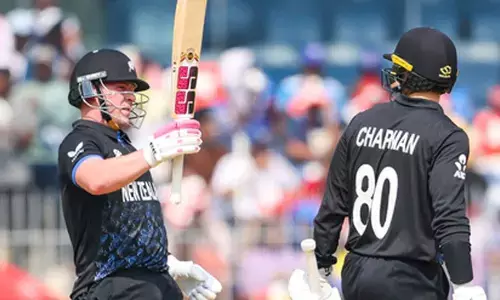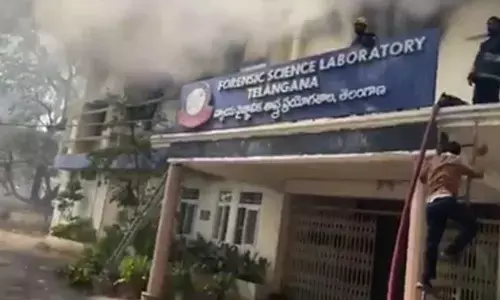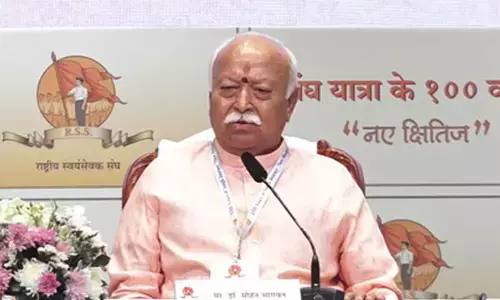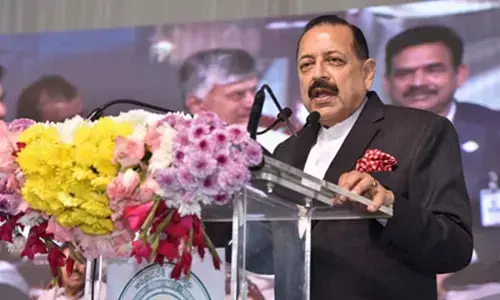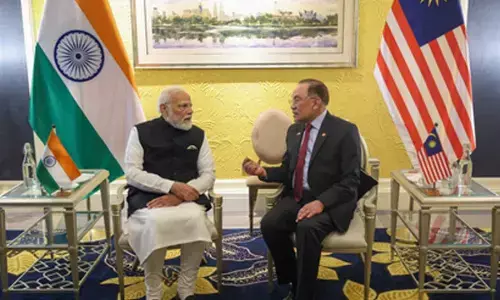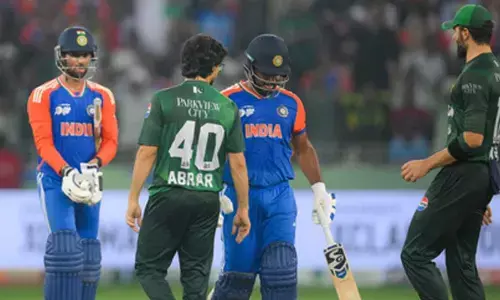How doubtful citizens can be 'foreigners'
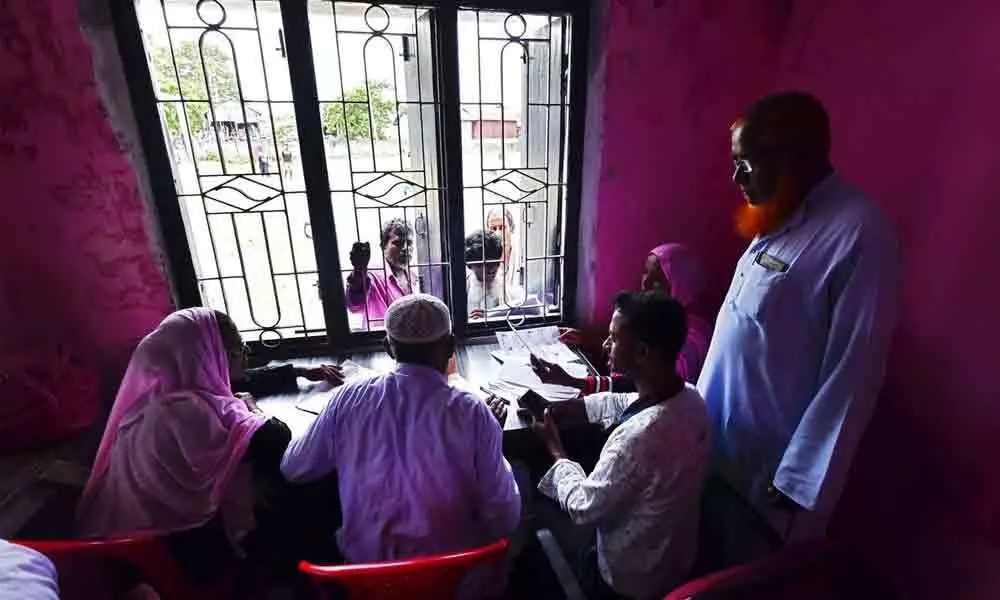
NEW ROUTE UNDER AMENDED RULES OF FOREIGNERS’ ORDER
The link between the NRC and the CAA is through amendment to Rules under Foreigners' Order. The Rule 3A (6) added by Amendment to Foreigners Order 1964 in 2019 says:
The district magistrate may also refer to the Tribunal for its opinion the question as to whether the appellant is a foreigner or not within the meaning of the Foreigners Act, 1946 (31of 1946), in terms of sub-para (1) of paragraph 2. In case of such reference to the Tribunal, it shall be deemed as a reference to the Tribunal in terms of sub-para (1) of paragraph 2, the Tribunal shall examine the said reference along with the appeal.
Rule 3A gives procedure for disposal of appeal referred to in sub-para (1B) of Paragraph 2, which says (i) while preferring an appeal, the applicant shall provide a certified copy of the rejection order received from the National Register of Indian Citizen hereinafter referred to as NRC authorities along with the grounds for appeal.
The Citizenship Rules themselves say nothing about what happens if one is found by a revenue inspector to be doubtful. But the amendments made to Foreigners (Tribunals) Order 1964 in 2019 empower a District Magistrate to refer a 'doubtful citizen' to a Foreigners Tribunal.
Ministry of Home Affairs, by an Order on the 30th May, 2019, with No. G S R 409(E), in exercise of the powers conferred by Section 3 of the Foreigners Act, 1946 (31 of 1946), amended the Foreigners (Tribunals) Order, 1964, to insert following provision at Section 2: "(1B) Any person referred to in paragraph 8 of the Schedule to the Citizenship (Registration of Citizens and Issue of National Identity Cards) Rules, 2003 may prefer an appeal, on the terms and conditions specified therein, before the designated Tribunal constituted under this Order (Foreigners (Tribunals) Order, 1964).
Other relevant amendments to Rule 6A are:
(2) The Appellant may appear either in person or through a legal practitioner or a relation authorised by the Appellant in writing subject to the acceptance of such representation by the Tribunal.
(3) The State government may appoint a pleader to represent the district magistrate.
(4) The Tribunal shall issue a notice to the district magistrate to produce NRC records within thirty days from date of receipt of the notice and a copy of the said notice shall also be sent to the pleader appearing for the government and to the appellant.
(5) The district magistrate shall provide the NRC records in original including the application form and documents submitted by the appellant and orders passed by the NRC authorities to the pleader appearing for the Government against the claims or objections filed by the appellant.
(6) The district magistrate may also refer to the Tribunal for its opinion the question as to whether the appellant is a foreigner or not within the meaning of the Foreigners Act, 1946 (31of 1946), in terms of sub-para (1) of paragraph 2. In case of such reference to the Tribunal, it shall be deemed as a reference to the Tribunal in terms of sub-para (1) of paragraph 2, the Tribunal shall examine the said reference along with the appeal.
(7) Persons against whom a reference has already been made by the competent authority to any Foreigners Tribunal shall not be eligible to file the appeal before the Tribunal.
(8) If any Foreigners Tribunal has already given opinion about a person earlier as a foreigner, such person shall not be eligible to file an appeal to any Tribunal.
(9) On behalf of the district magistrate, the pleader shall produce the NRC records before the Tribunal and also the reference mentioned in sub-para (6).
(10) Upon production of the records, if the Tribunal finds merit in the Appeal, it shall issue notice to the Appellant and the district magistrate for hearing specifying the date of hearing and such date shall be within thirty days from the date of production of the records.
(11) The district magistrate may depute an officer as authorised representative to act on his behalf in any proceeding before the Tribunal.
(12) During the hearing, the Tribunal shall give the appellant, the pleader appearing for the government and the authorised representative of the district magistrate, if any, a reasonable opportunity to present their case including the filing of any representation or producing documents or evidence in support of their case.
(13) While disposing the appeal or reference mentioned in sub-para (6), the Tribunal shall be guided by sub-paras (9), (11) and (12) of paragraph 3 of this order.
This procedure requires the records to prove the data claimed by resident or citizen in India. A poor person or victim of cyclones and displacements, having no records will end up as doubtful citizen and might land before Foreigners Tribunal to ultimately reach the Detention Centre.
Foreigners Order and Rules under it, besides amendments to it are made by exercise of an executive power without legislative sanction. Very cleverly Centre made rules to doubt citizens and to convert 'doubtful citizens' into foreigners through two kinds of Rules under two different legislations, without amending law.
Centre gave power to lower-rung revenue officers to doubt the citizens and empowered District Magistrate to refer them to Foreigner's Tribunal, which deals with intruders and immigrants. All of a sudden, a citizen will be doubted and made an 'accused' before a Foreigners' Tribunal, which is not a court. An officer decides the fate of a citizen based on the 'records'.
The required records are decided by NPR. The data of NPR is the basis of NRC which leads to invocation of powers under CAA. The Foreigners Tribunals in Assam created a havoc in the lives of the 19 lakh citizen, which include 13 lakh Hindus and others besides 5 lakh Muslims.
The havoc gets escalated to whole nation if NRC is implemented all over India. On July 31, 2019, the Union Ministry of Home Affairs had issued the notification for preparation of NPR between April 2020 to September 2020.
This is diabolic link between the trio of NPR, NCR and CAA, through Rules amending Foreigners Order, Rules of 2003 under Citizenship Act, without reference to parent Legislations.
The aim of CAA is said to be to provide citizenship to certain sections on humanitarian grounds, with concern for foreign citizens of Indian origin. The Prime Minister and Home Minister claimed that CAA was to give citizenship and not to take it away from anyone.
With CAA any migrant from neighbouring countries gets a chance to apply for citizenship provided they stay for 12 years in India.
The law earlier to CAA 2019, clearly gave power to reject citizenship application on the ground that such migrant person has violated Indian Penal Code and other laws.
The administration has enough discretion to refuse citizenship to persons who have doubtful links with terrorists, enemies, divisive elements etc. If the government is sincere and efficient enough, it could have used that power. If the discretion is used to deny citizenship to a Muslim on such doubts, they might have not any cause of action to challenge the denial.
But the Centre chooses to amend the Citizenship Act 1955 to deny by law the Muslims the citizenship if they migrated from Pakistan, Bangladesh and Afghanistan before 31st December 2014 even though resided for five/six/eleven years before the application. Migrants of six religions other than Muslims can get Indian citizenship now.
The government says that to secure the country, infiltrators should be eliminated and to identify them every citizen has to be identified, registered and issued with Identity card. Very few understand that there is no need to register 130 crore names to eliminate a few lakh infiltrators.
Section 17 of the Citizenship Act empowers the Central government to make rules by notification in the Official Gazette to carry out the purposes of the Act. The matters in respect of which such rules may be made are specified therein the Act itself.
Rules cannot transgress it. The purposes are to make rules for naturalisation, registration etc of citizenship. It does not originally envisage registration of every citizen and registration of entire population. It was only added by the Citizenship Amendment Act 2004. The Rules are made prior to this Amendment, in 2003
There are specific provisions in Act 1955 to deprive the citizenship under Sections 9 and 10 of the Citizenship Act 1955. A new power to remove the citizens has been created by Rules without sanction of parent legislation, which is hence invalid. The power granted to an officer to mark 'doubtful citizens' is arbitrary and unreasonable, besides being not supported by law.
'National Population Register', which has its base in the rules framed by the Central government under the Citizenship Act, 1955 in 2003 called the Citizenship (Registration of Citizens and Issue of National Identity Cards) Rules, 2003.
Incidentally, these are the same rules which give legal framework for National Register of Indian Citizens as well. For making NRC, the particulars entered in the NPR is first verified by the Local Register of Citizens as per Rule 4(3). Following this verification, the NRC is finalised, after removing 'doubtful citizens'.
(The writer is former Central Information Commissioner and Professor at Bennett University)








